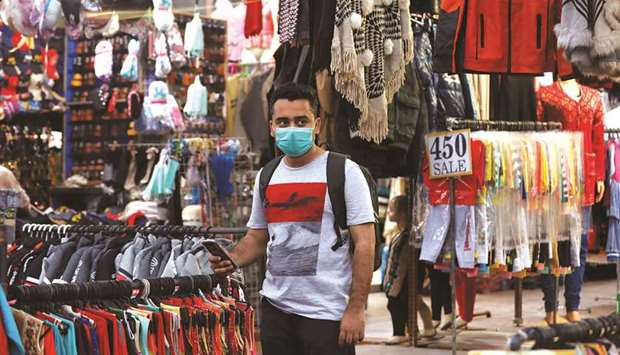The National Command and Operations Centre (NCOC) yesterday reported that there has been an increase in the Covid-19 positivity ratio across Pakistan, which is causing policymakers some concern.
In an update shared with the media after the meeting, the NCOC said a detailed review of the emerging coronavirus situation in the country was undertaken by the forum after the opening up of various sectors of the economy.
“The forum was apprised that there has been a slight increase in the positivity ratio and the number of cases across Pakistan, though the overall situation remains stable,” a statement issued after the meeting read.
During the meeting, Federal Minister for Planning Asad Umer emphasised that public safety is of the utmost importance and the success of national anti-virus efforts so far should not be allowed to go to waste.
After the discussion, the NCOC decided to review the present situation at length and formulate a comprehensive response to check any possible resurgence of Covid-19 to ensure public health and safety.
Health experts also briefed the participants on the pattern and prevalence of a possible second wave in the world, and particularly in the region.
The participants were informed that there has been a marked decline in following health guidelines on wearing of masks, social distancing and ‘no mask no service’ protocols.
“Shaking hands has become a routine in total disregard to public safety and health,” the statement noted.
The statement further said that social events and large public gatherings, particularly in restaurants and marriage halls, have been identified as higher risk activities where guidelines are not being followed as directed by health experts.
Meanwhile, the National Institute of Health (NIH) has warned that coronavirus may rapidly spread during the winter season.
The NIH in an advisory ‘Seasonal Awareness and Alert Letter (Saal)’ has said that diseases such as Covid-19, dengue fever, Crimean-Congo Hemorrhagic Fever virus, diphtheria, pertussis, seasonal flu and extensively drug-resistant (XDR) typhoid can spread rapidly from October to February.
The NIH has advised all health authorities and professionals concerned to declare high alert, and for the timely and efficient response to the outbreaks/epidemics.
“On the basis of last five-year data, NIH recommends for all federal, provincial and district health departments to keep continuous surveillance and watch on the anticipated seasonal public health threats and taking of all preventive or curative measures in this context,” NIH said.

PROTECTION: A man wearing a protective mask pauses in a market in Karachi. Reuters
